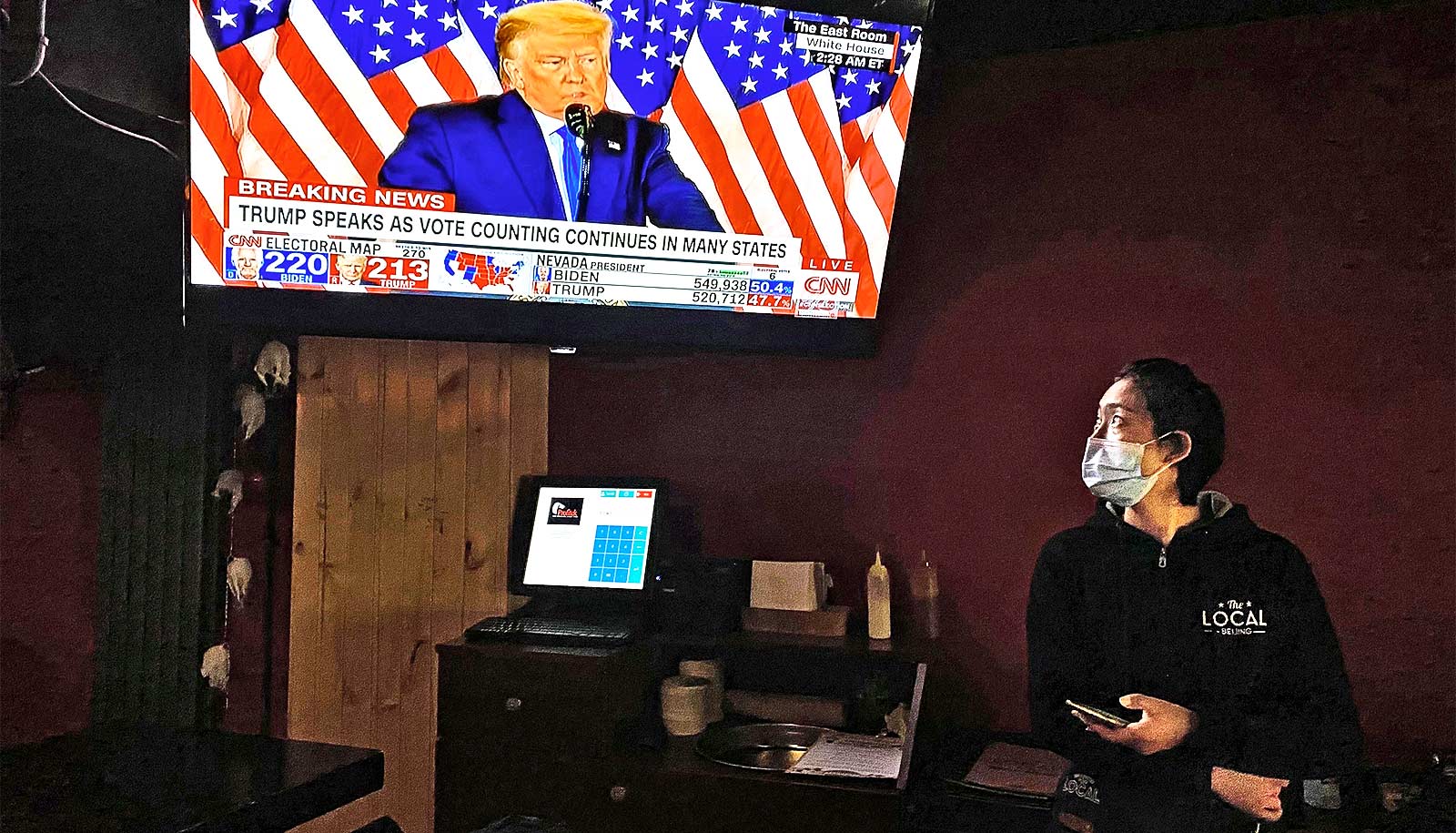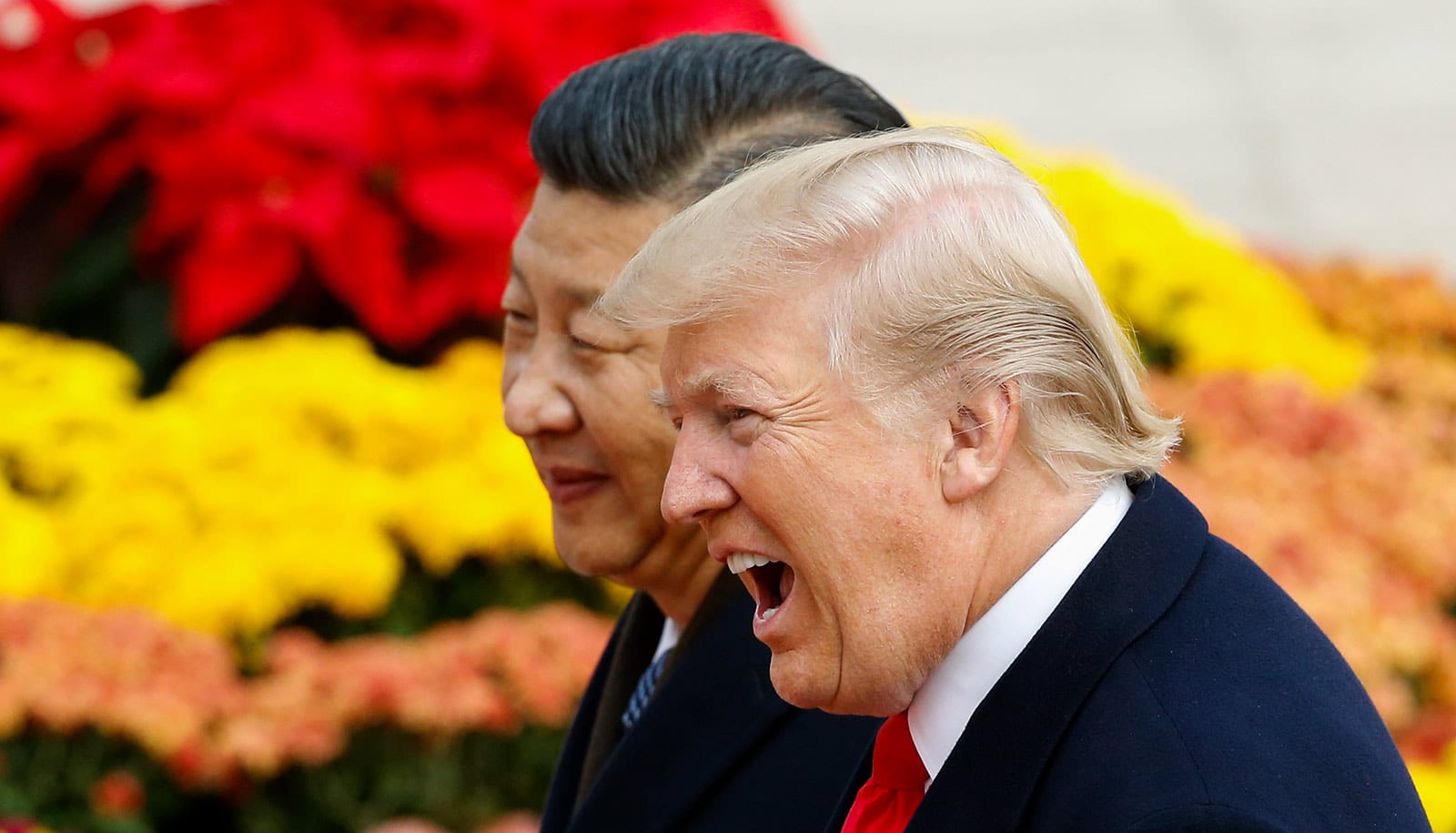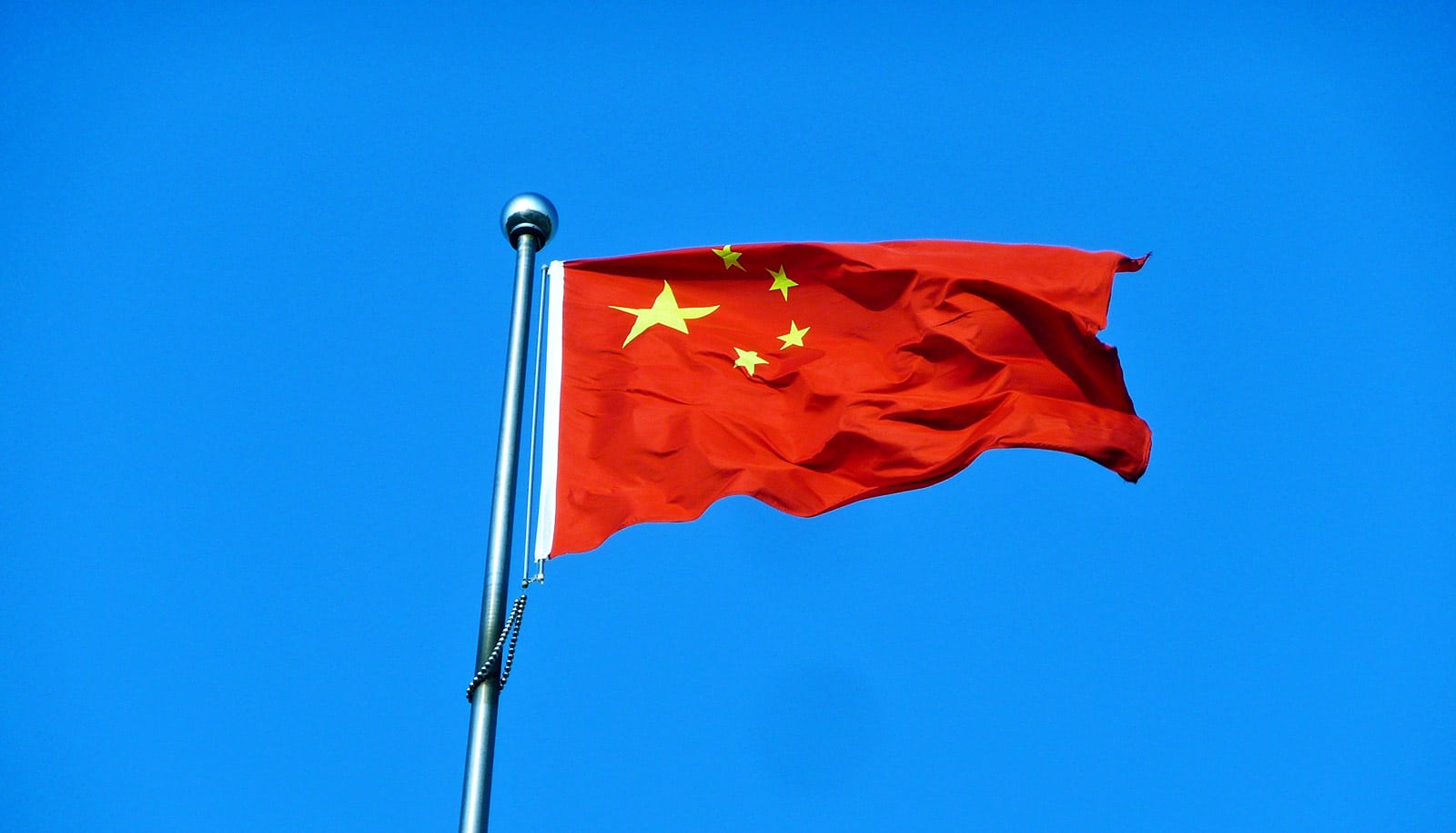The perceptions of people in China concerning the United States plummeted during Donald Trump’s presidency, a survey of public opinion in the country shows.
Researchers based their study on data collected before and after the 2020 presidential election. Songying Fang, an associate professor of political science at Rice University, and one of the paper’s authors, says the study is rare in addressing the topic.
“There are a lot of American public opinion surveys about China. But there are very few up-to-date public opinion surveys about Chinese attitudes toward the outside world in general, and to the United States in particular,” she says.
“To me, that is missing an important piece of information. If you think about the relationships between the countries, we often think of them as government-to-government relations. But these relationships have domestic foundations, which include public opinions.”
Trump’s trade policies toward China were a source of significant controversy during his presidency. In January 2018 , he began establishing tariffs and other roadblocks to trade with China in order to force the country to adjust what the US considered to be unfair trade practices and theft of intellectual property.
The researchers conducted the survey in two waves, one before the 2020 US presidential election and another after the election. When they asked Chinese citizens before the election whether they thought the US would take China’s interests into consideration in its foreign policy decisions, 76% of the respondents said either “not at all” or “not too much.” In the second wave—conducted after Biden’s election—that fell to 68%, still far higher than the 38% found in a 2013 by the Pew Global Attitudes Project.
The first-wave survey also found that 75% of Chinese respondents believed the relationship between the US and China had worsened in the past year; only 6% said the relationship had improved. The second-wave survey revealed that only 64% of Chinese respondents believed bilateral relationship worsened, with 15% believing it had improved. Fang says only time will tell if the uptick in favorability lasts.
The researchers also found Chinese youths viewed the US more negatively than their elders. When compared to people born in the 1960s or before, Chinese born in the 1990s or later were about 9% less likely to say that the US cared about China’s interests when making foreign policies and 5% less likely to say the US had a positive influence on the Chinese economy.
“We suspect that this is in part because they were exposed to the Trump era while they were still forming their world views, as opposed to people who are in the 40s and 50s,” Fang says. “Also, older generations grew up at a time where America was perceived to be much more advanced than China in many ways.”
Younger generations have grown up in a China that is much more developed, so they are not as impressed by material conditions of life in the US, she says.
But the research found youths more likely to have positive views if they had lived or studied in the US. Fang believes that demonstrates the value of cultural exchanges and study-abroad programs.
“Public opinion is ultimately the foundation of government policy and intergovernmental relationships, so anything that demonstrably improves these relationships is something that’s definitely worth doing,” Fang says.
The study also found that before and after 2020, 45% and 46% of the respondents, respectively, believed the world would be better off with China as the leading power. About 22% and 20%, respectively, said the best scenario would be the US and China jointly leading the world.
Almost 30% said they did not want China to lead the world. “These individuals may think that it’s too costly, and that there is a trade-off between leading the world and fixing domestic problems,” Fang says.
The study appears in the Chinese Journal of International Politics. Additional coauthors are from the University of British Columbia and the National University of Singapore.
A faculty startup grant for Liu from the National University of Singapore funded the work.
Source: Rice University



